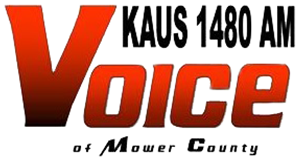Mower SWCD offering free nitrate testing through Friday

Mower County residents who drink water from a private well can have a sample tested for nitrate through Friday in Austin at no charge.
Mower Soil & Water Conservation District is offering the no-cost nitrate screening from 7 a.m. to 5 p.m. daily from Wednesday, January 31st through Friday, Feb. 2,. at the SWCD office, 1408 21st Ave. N.W.
For the three-day period, Mower SWCD will use nitrate-testing equipment provided by the Minnesota Department of Agriculture. It will provide a rapid, unofficial test result for each well-water sample brought in by the public.
It is important to note that this rapid test for nitrate does not qualify as a lab-certified test, said Jessica Bulman, Mower SWCD’s conservation technician leading the free testing.
Those seeking a lab-certified test, she said, can get a free testing kit from the Olmsted County’s Southeastern Minnesota Water Analysis Laboratory, which has given dozens of kits to Mower SWCD for paid, lab-certified testing. These kits include boxes with pre-paid postage and bags for samples requiring immediate drop off at the lab, such as for bacterial testing.
Safe levels of nitrate in drinking water are between 0 mg/L (milligrams per liter) to 10 mg/L, according to the Minnesota Department of Health (MDH). Testing water is the only way to determine a private well’s nitrate level. You cannot taste, smell or see nitrate in water. If nitrate is detected, other contaminants also might be in that well’s water.
Those interested in the Mower SWCD nitrate screening should run their water for 10 minutes before collecting a sample in a bottle, jar or sealable plastic bag and kept cold until brought to Mower SWCD’s office. The container should be labeled with the resident’s name, sample date and sample time.
When found in higher concentrations, nitrate can be dangerous to human and animal health. Infants who drink water high in nitrate have an increased risk of developing Blue Baby Syndrome, which can be fatal. While studies continue on nitrate’s effects on human health, it is known that nitrate increases the risk in adults for thyroid disease, colon cancer and birth defects.
Residents who use water from a community, public water supply should know those wells already are tested and the results are available on MDH’s website under “Drinking Water Protection – Consumer Confidence Reports.”
Nitrate is a vital nutrient for plants and animals but also is a common pollutant in Minnesota groundwater. Most nitrate pollution in groundwater comes from plant matter; human and animal waste; leaking septic systems; and fertilizers.
Land use and hydrogeology affect nitrate levels in water, MDH says.
Mower SWCD also is seeking interested citizens to participate in southeast Minnesota’s Volunteer Nitrate Monitoring Network (VNMN). The initiative gathers samples for observing long-term trends of nitrate concentrations in private drinking water wells. Mower County is one of VNMN’s nine participating counties.
Volunteers in the VNMN program annually receive a nitrate test kit sent to their home from the Olmsted water lab. Homeowners then fill up the kit’s bottle and send it for analysis to the lab, which provides them with the results.
In 2022, VNMN had samples from 376 private drinking water wells in southeast Minnesota and found 8.2 percent of those samples had a nitrate level above the 10 mg/L threshold.
MDH says the types of private wells most vulnerable to nitrate contamination, especially if near a septic tank or area with agricultural activity, include shallow wells; wells in sand aquifers; dug wells with casings that are not watertight; and wells with damaged or leaking casings or fittings.
To prevent nitrate contamination, MDH recommends building your well in a safe spot; keeping nitrate sources away from your well; regularly inspecting your well for damage; and testing for nitrate every year.
Landowners across Mower County who have an old or unused well that needs to be sealed also can work with Mower SWCD to apply for cost-share assistance for sealing the well. Mower SWCD has funding to offer 50 percent cost-share up to $1,000 or $1,500 depending on the well’s location in Mower County.
In April 2023, area groups filed an emergency petition calling on the federal Environmental Protection Agency (EPA) to act under the Safe Drinking Water Act to address nitrate contamination in drinking water in southeast Minnesota’s karst region. This includes all or parts of eight counties: Dodge, Fillmore, Goodhue, Houston, Mower, Olmsted, Wabasha and Winona.
These groups claim the nitrate contamination in public water systems and private wells is causing an imminent and substantial endangerment to public health.
In fall 2023, EPA determined further action is needed, asking state agencies to develop a plan and provide education and outreach along with alternative drinking water to residents with water above the maximum contaminant level for nitrate.







